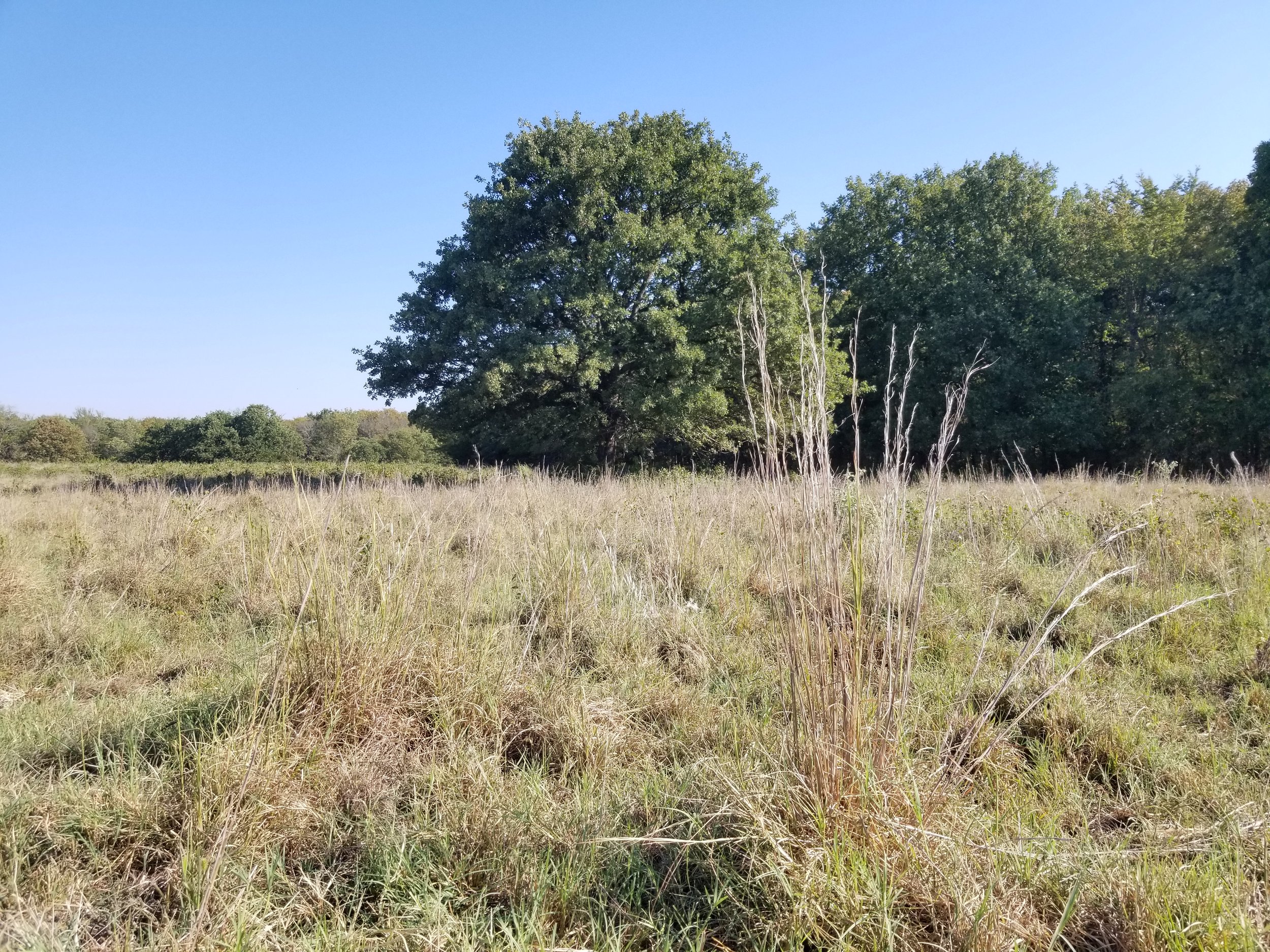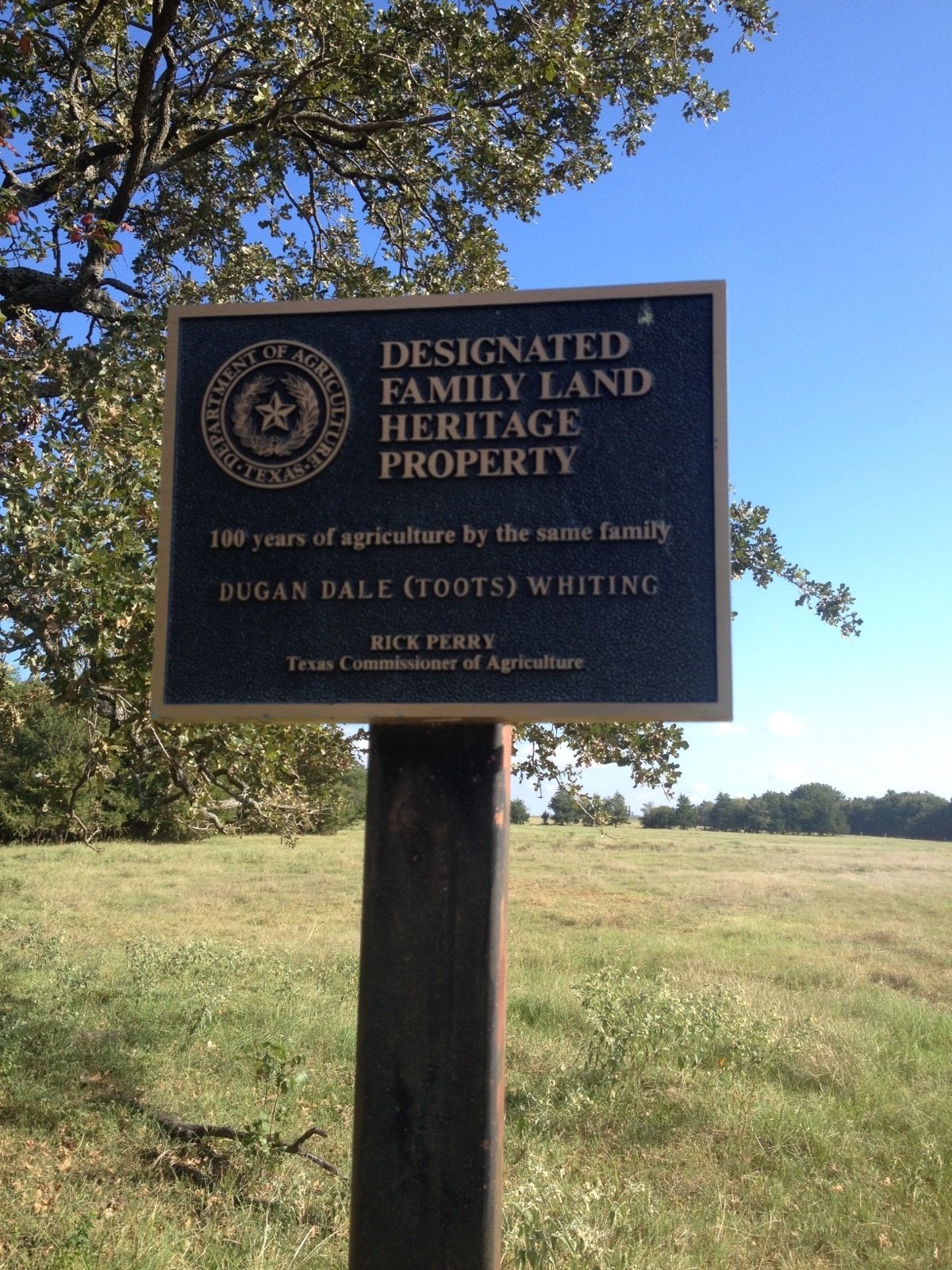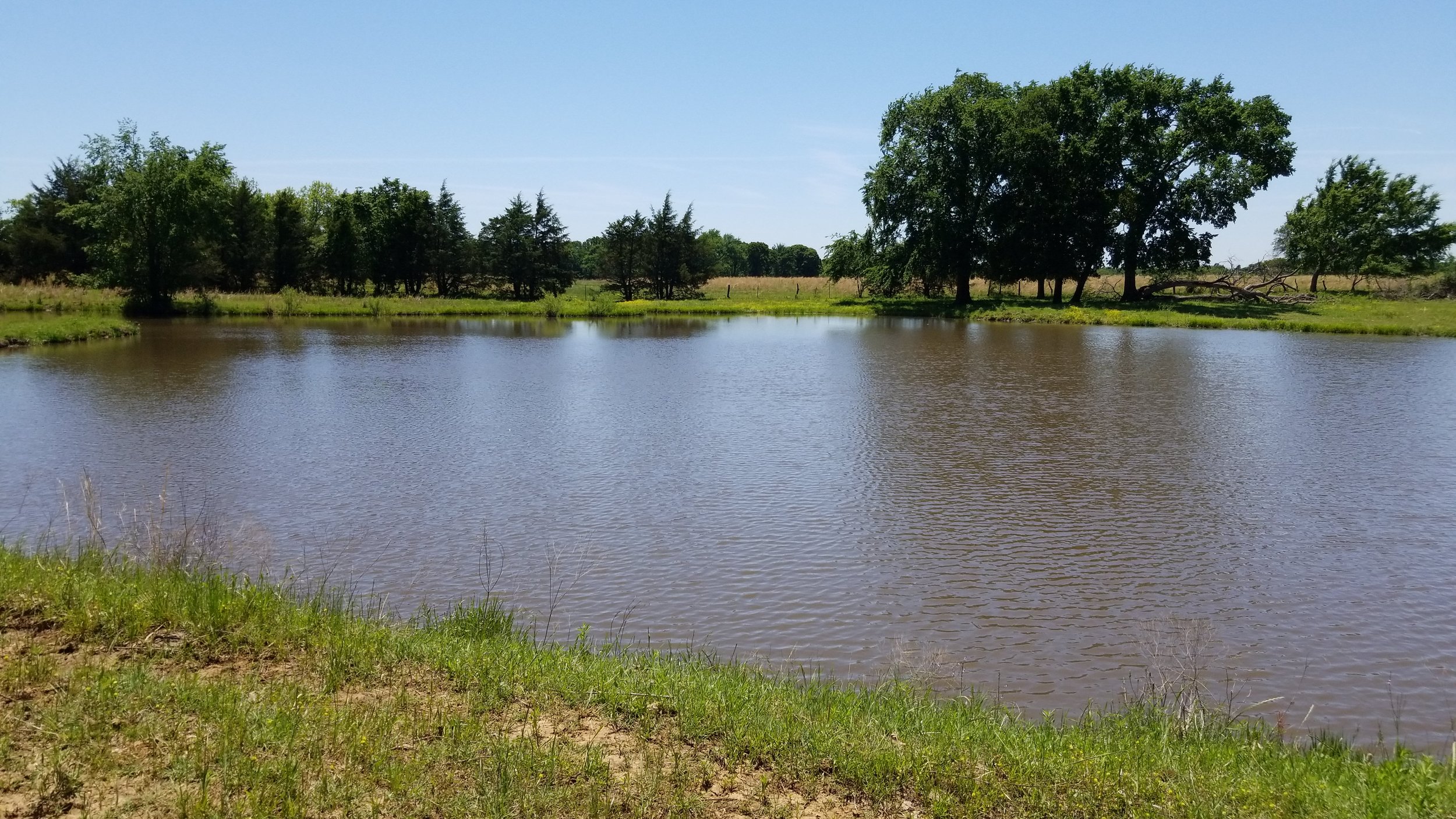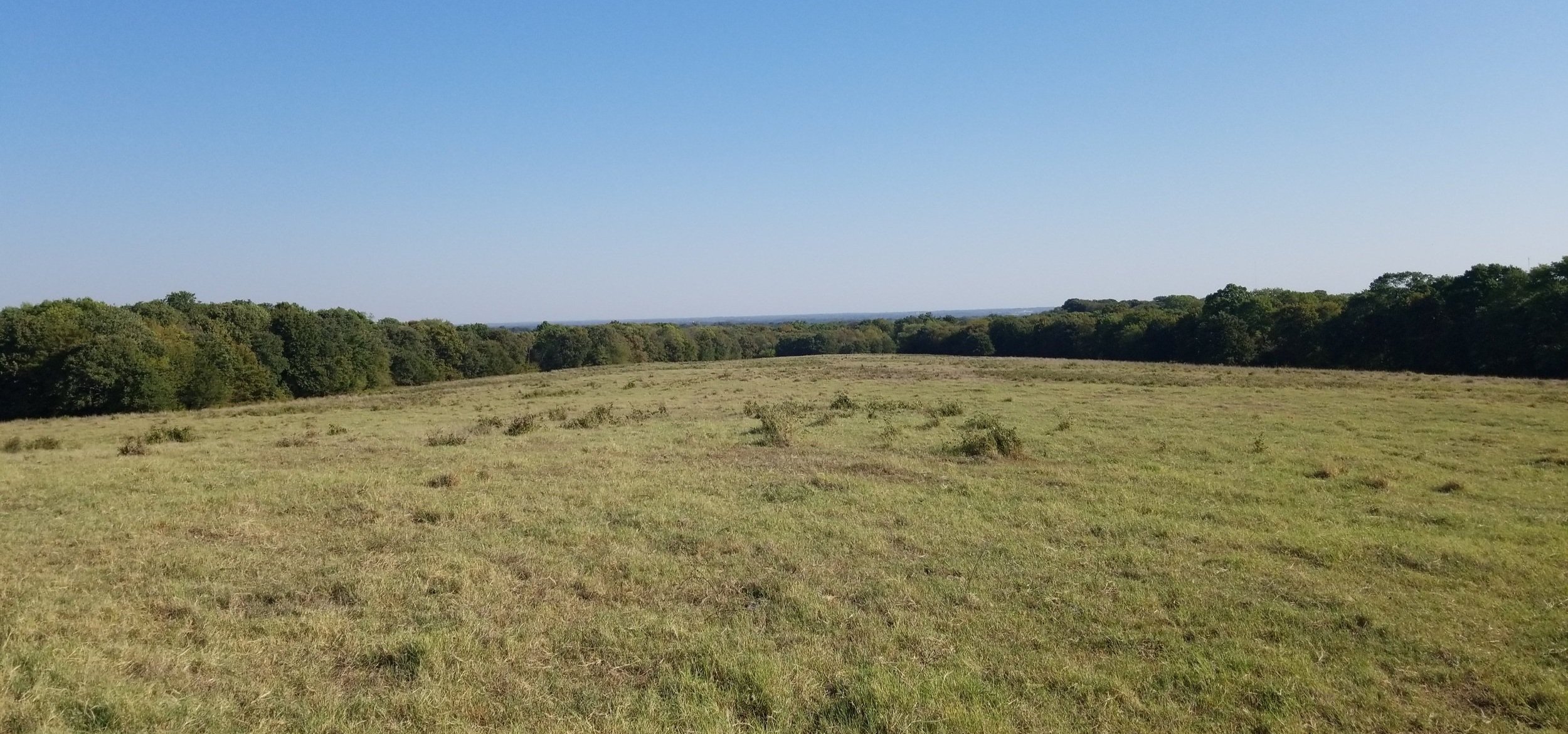411 Acres of North Texas Rangeland and Wildlife Habitat Protected Forever!
Texas Land Conservancy is proud to announce the protection of D.D. Whiting Family Ranch, a 411-acre working cattle operation near the town of Bells, in Grayson County.
As North Texas rapidly expands, it is important for properties like D.D. Whiting Family Ranch, which supports agriculture and wildlife habitat, to be permanently protected. The average ranch size in Grayson County is 151 acres, so we are excited to celebrate this large open space and its rural character that will be protected from fragmentation and development forever.
A Family's Legacy
Landowner Carin Whiting Monk’s property has been in her family for over 175 years. It was originally part of a Republic of Texas land grant in the 1840s to her great-great-great-grandfather, Daniel Dugan, and the property has had no other owners, other than their family. Carin’s mother gifted this parcel of land to Carin and her sister, Ingrid Whiting Fowler, in the 1970s. But when Ingrid passed away unexpectedly in 2020 and Carin received her sister’s half, she knew she wanted to see it permanently protected.
“It would be a shame to lose the peacefulness, picturesque landscape, and the beauty of watching cattle roam the land with majestic century-old trees, wildlife and fowl of all kinds to today’s development frenzy. It is good to have TLC keep my vision alive.” says Carin.
The ranch has always been managed for agriculture, primarily for cattle grazing, but also haying. The Texas Department of Agriculture’s Family Land Heritage program is a recognition program that honors families who have owned and operated a continuous agricultural operation for 100 years or more. This ranch, known as the Dugan Dale (Toots) Whiting Property, was designated a Family Land Heritage Property in the 1970s.
History of the Property
Various Caddo groups, including the Kichai, Ionis, and Tonkawa Indians, were the earliest known inhabitants of the area that became Grayson County. These native populations were agriculturalists who found the soils of the area suitable to their way of life. They traded and negotiated with the Spanish and French, who moved up the Red River during the eighteenth century to establish trading posts. These European expeditions resulted in the initial settlements established in the area around 1836–37, and the Dugan family, like others at the time, received their land through a Republic of Texas land grant.
As written by Lora W. Tindall (a Dugan descendant) and Dr. Clyde Hall for the East Texas Historical Journal - The second pioneer family to arrive in Grayson County was that of Daniel and Catherine Dugan and their four boys and three girls. Having emigrated from Missouri, and after having tarried a while on Bois d’ Arc Creek in Fannin County, the Dugan family settled in Grayson County. The family selected a large land area that included the prairie, rolling hills with their forests plentiful with wild game and the spring-fed Mill Creek, a tributary of the Choctaw. Dugan received his patent for a full league of land from the Republic of Texas on Dec. 1, 1845. Unlike the Montague family, the Dugan family remained in Grayson County and Dugan descendants continued to reside on land where the Dugan family first settled and are recognized representatives of the oldest pioneer family with continuous residence in the northeastern quadrant of Grayson County.
What is a Republic of Texas land grant?
A Republic of Texas land grant was a type of land grant that was issued by the government of the Republic of Texas to encourage settlement and development of the region during Texas's existence as an independent nation from 1836 to 1845. These grants typically awarded land to individuals or groups of settlers who agreed to live on and improve the land, and were an important part of the Republic's efforts to attract new residents and stimulate economic growth. Many of the land grants issued during this time period still exist today and are an important part of Texas history.
Ecosystem Management with Cattle Grazing
D.D. Whiting Family Ranch is located in a transitional zone between two major ecoregions known as the Cross Timbers and the Blackland Prairie. The Cross Timbers has played an important role in the history and development of Texas, serving as a natural barrier that helped to shape early settlement patterns and transportation routes. The region is characterized by its dense woodlands of oak, hickory, and cedar, as well as its vast grasslands and rolling hills. The Blackland Prairie is also of great importance due to its unique soil composition, which supports diverse and productive agricultural activities, as well as being a vital habitat for numerous plant and animal species. Today, the region is valued for its biodiversity, providing habitat for a wide range of plant and animal species.
The ranch is able to maintain its grasslands by utilizing cattle. Cattle grazing can help to keep woody plants from growing in grasslands through a process called "browse control". Woody plants such as shrubs and trees are often preferred by grazing animals, but they can be detrimental to grasslands because they compete with grasses for resources such as sunlight, water, and nutrients. As a result, they may selectively browse and reduce the growth of woody plants, limiting their spread and growth. Overall, when managed properly, cattle grazing can help to control the growth of woody plants and maintain the health and productivity of grassland ecosystems. The ranch is also located within the Central Flyway, a route traveled annually by numerous species of waterfowl and other migratory birds.
We are extremely grateful to Carin Whiting Monk and all of our landowners who have made the commitment to permanently conserve their land. In addition, we’d like to thank our members and supporters – YOU make this important work possible!







